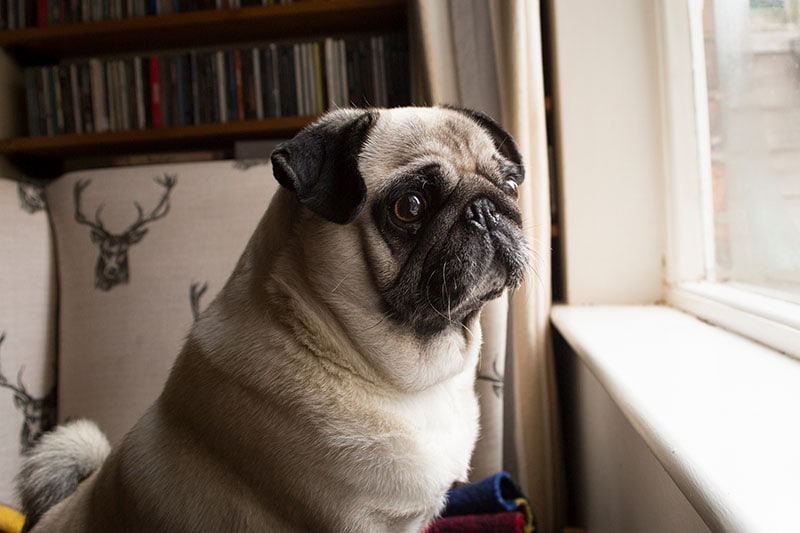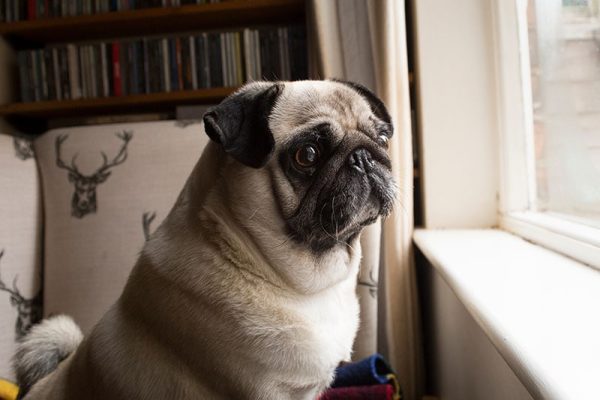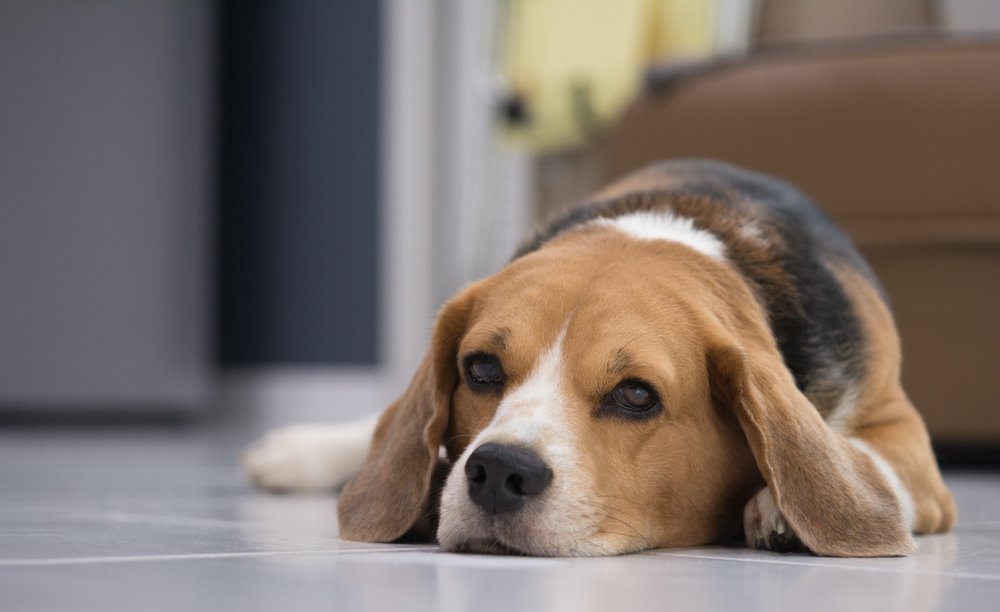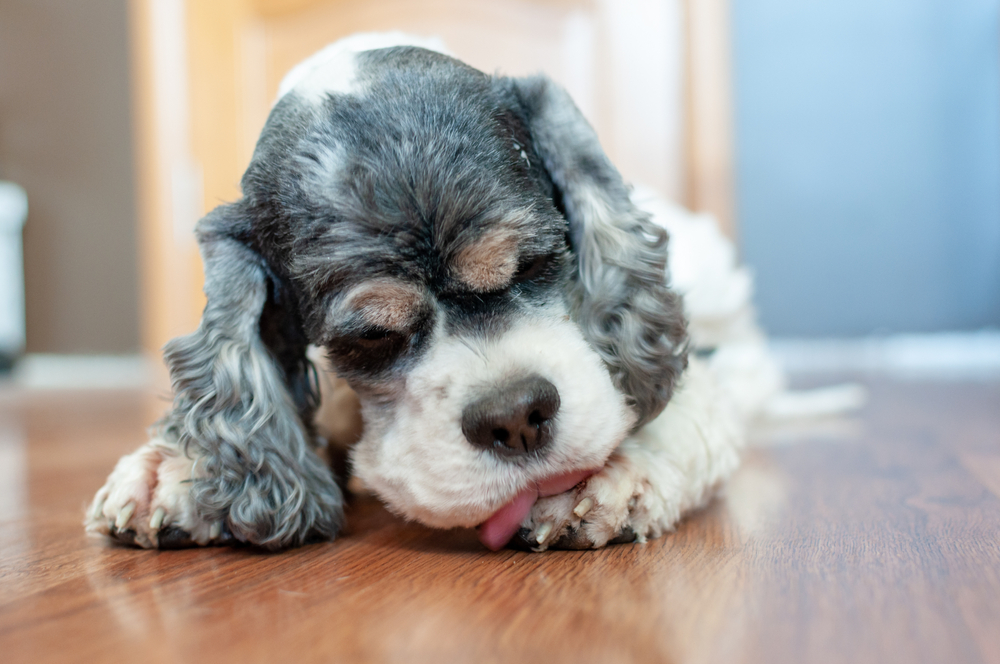Click to Skip Ahead
As our affectionate, lifelong companions, dogs provide us with support and unconditional love, but what happens when we forget about our dog’s worries due to having our own? Like humans, dogs can experience anxiety, and although it may seem like it’s not that common, this problem is actually prevalent in dogs.
That’s why Dog Anxiety Awareness Week was created. This event is about raising awareness about dog anxiety and helping dog parents worldwide help their pets cope with this problem. Dog Anxiety Awareness Week is every first full week in May. This year, it was from May 1 to May 7.
Read on to learn more about dog anxiety and its signs, causes, and treatment, and discover how you and your furry companion can observe this day together and spread the word about this important problem.
When Is Dog Anxiety Awareness Week?
Dog Anxiety Awareness Week is celebrated across the U.S.A. every first full week of May.
This year, Dog Anxiety Awareness Week was celebrated from May 1st and lasted until May 7th. Even if you’ve missed this year’s dates for commemorating this event, it’s never too late to learn how to get involved in fighting this problem for the whole year!
Why Is This Week Important?
Dog anxiety is a common problem in dogs that often goes unnoticed, hence the reason for the creation of this event. Over the years, it has been extremely important for raising awareness about the severity of dog anxiety and how it affects our furry companions. Activists teach people how to recognize this problem in their canines and find the appropriate ways to help them.
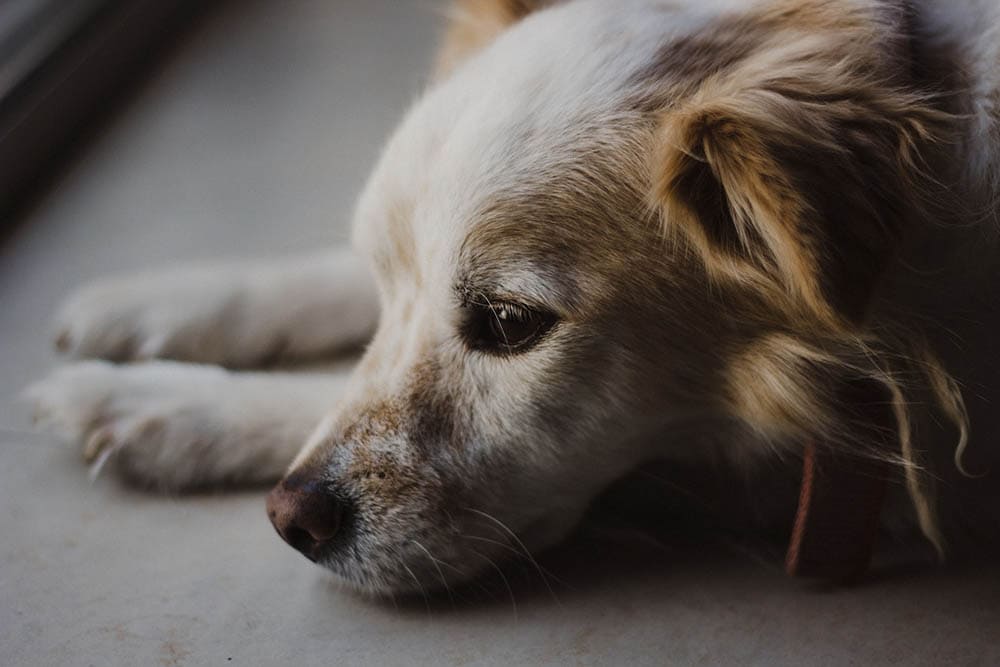
The 3 Ways to Commemorate Dog Anxiety Awareness Week
1. Monitor Your Dog for Signs of Anxiety
One of the easiest ways to commemorate Dog Anxiety Awareness Week is to monitor your dog for signs of anxiety, weird behavioral patterns and eating habits, and any other irregularities that might point to nervousness. This way, you can reduce the triggers and help your dog feel more comfortable.
2. Establish a Healthy Daily Routine
Dogs that suffer from anxiousness need as little anticipation in their life as possible. You can help your anxious dog by establishing a healthy daily routine. Dogs with a well-planned schedule are less likely to become anxious and will feel comfortable throughout the day as they always know what’s coming.
3. Consider Getting a Dog Therapist
If you have an anxious dog and in-home treatment hasn’t helped much, you can ask a dog therapist to help your canine. If left unchecked, anxiety can lead to more severe behavioral and health problems, which is why professional help may be necessary to resolve this problem.
PangoVet. It’s an online service where you can <b>talk to a vet online</b> and get the personalized advice you need for your pet — all at an affordable price!</p>
<p><div class="su-button-center"><a href=https://www.dogster.com/dog-health-care/"https://pangovet.com/?utm_source=dogster&utm_medium=article&utm_campaign=dog_behavior_training%22 class="su-button su-button-style-default" style="color:#FFFFFF;background-color:#FF6600;border-color:#cc5200;border-radius:9px;-moz-border-radius:9px;-webkit-border-radius:9px" target="_blank" rel="nofollow"><span style="color:#FFFFFF;padding:0px 24px;font-size:18px;line-height:36px;border-color:#ff944d;border-radius:9px;-moz-border-radius:9px;-webkit-border-radius:9px;text-shadow:none;-moz-text-shadow:none;-webkit-text-shadow:none"> Click to Speak With a Vet</span></a></div></div></div></p>"}" data-sheets-userformat="{"2":515,"3":{"1":0},"4":{"1":2,"2":16776960},"12":0}"> If you need to speak with a vet but can’t get to one, head over to PangoVet. It’s an online service where you can talk to a vet online and get the personalized advice you need for your pet — all at an affordable price!
What Is Dog Anxiety?
Just like us, dogs can experience anxiety. Although it’s unpleasant, anxiousness can function as a healthy emotion when it happens occasionally. Anxiety can occur in all dog breeds, but each dog can handle it differently. If a dog is exposed to the feeling of anxiousness for long periods and it’s left unchecked, your furry companion could develop an anxiety disorder and other behavioral issues.
But is this problem so widespread in dogs? What can you do to recognize it?
In a study on dog anxiety that included 13,700 dogs, researchers discovered that 72.5% of the dogs exhibited anxiety-like behavior, including general fearfulness, noise sensitivity, fear of strangers, and similar fears.1 In the U.S.A., over half of dogs (over 50 million of them) suffer from some form of anxiety, stress, or fear. Unfortunately, many dog parents, as loving as they are, are unaware of this issue and don’t know how to help their dogs cope with anxiety. Around 35% of families with anxious dogs in the country haven’t tried to treat their dog’s problem, mainly because they believe that there’s nothing they can do.
However, many things can be done to help anxious dogs.
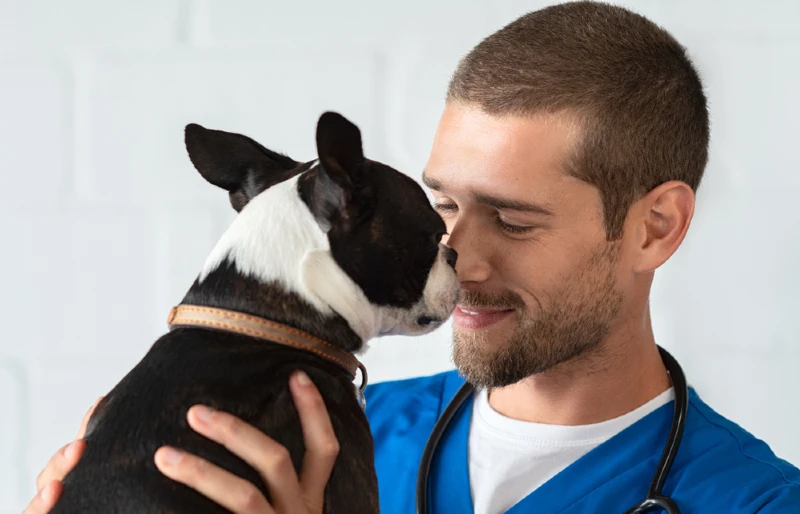
Main Sources of Dog Anxiety
Dogs can develop anxiety for various reasons. Some dogs may experience anxiety as a response to traumatic experiences and health conditions, while others may experience it due to various environmentally related causes.
Here’s a list of the main sources and triggers of anxiety in dogs:
- Travel
- Separation
- Fireworks
- Loud noises
- Thunder
- New people and pets
It’s common for dogs to feel nervous and anxious in new and unfamiliar situations and environments and when introduced to strangers and new animals, but some dogs may also experience this problem due to separation anxiety and past negative experiences.
Regardless of the cause, every dog struggling with this issue should get adequate help and attention to prevent further damage to their nervous system and behavioral problems.
Signs of Anxiety in Dogs

Anxiety results in various bodily reactions that are related to the feeling of fear and anticipation of the unknown. The clinical signs that dogs experience will vary depending on the severity of the issue; the most common ones include:
- Clinging
- Pacing
- Panting
- Excessive drooling
- Restlessness
- Destructiveness
- Aggression
- Excessive barking
- Developing inappropriate bathroom habits
- Trying to escape
- Compulsive behaviors
- Depression
Frequently Asked Questions
What Is the Best Way to Help an Anxious Dog Calm Down?
When dogs feel anxious, it’s always good to help them calm down. Here’s a list of tips to help you do that:
- Try to eliminate triggers that cause your dog’s anxiety.
- Create a safe space inside your home where your furry companion can unwind when feeling anxious.
- Develop a daily routine for your dog, as that tends to reduce anticipation and therefore, anxiety.
- Exercise with your dog regularly, and ensure that your furry friend gets the proper mental and physical stimulation throughout the day.
- Provide love and physical contact; you can even give your dog a soothing massage.
- Learn how you can prevent anxiety for your dog in the future.
Is There a Way to Prevent My Dog From Becoming Anxious?
It can be tricky to prevent your dog from becoming anxious if you don’t know their triggers. Still, there are several ways that you can help them avoid anxiety-related problems:
- Body language — One of the easiest ways to prevent anxiousness in your dog is to learn how to read their body language. Learning to recognize when your dog is feeling scared, uncomfortable, or frightened can allow you to turn negative emotions into positive ones.
- Training — All dogs require adequate training from an early age in order to develop properly. Canines with proper obedience and socialization training are often more balanced and well-adjusted, causing them to adapt to new situations and people more easily and therefore, be less anxious.
- Nutrition and exercise — Proper nutrition and enough exercise are crucial for your dog to be in the best possible shape. If these needs are not met, many dogs can experience problems and anxiety.
- Situation avoidance — If your dog suffers from anxiety, you can practice situation avoidance and avoid all triggers that cause anxiousness in your canine.

Final Thoughts
Dog Anxiety Awareness Week is celebrated every year during the first full week of May, and this event is all about spreading awareness about dog anxiety and how to help affected dogs. So, share the word about this problem, and make the world a better place for anxious canines!
Featured Image Credit: Diana Parkhouse, Shutterstock

